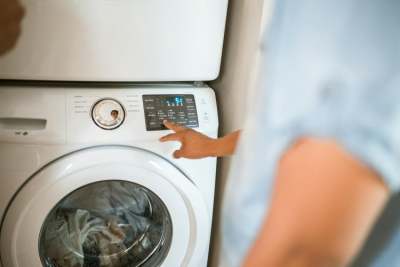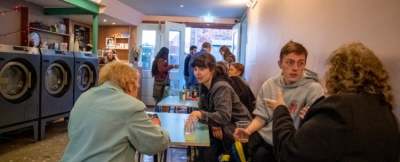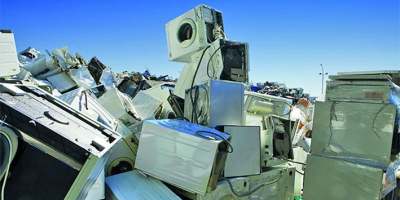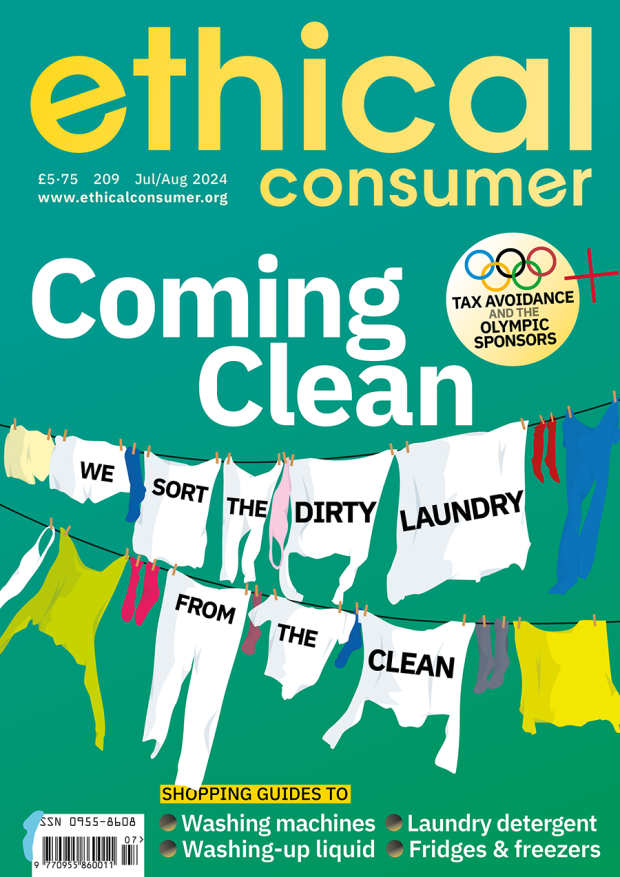Doing the laundry isn't a task many people relish, and ethical consumers may worry about energy and water use, and synthetic microfibres being shed from clothes and ending up in the environment. We might try to be more ethical by using eco friendly laundry detergent, or buy more sustainable clothing. These are great, but we can also have an impact through the choice of our washing machine brand.
This guide sorts the clean brands from the dirty, including who makes energy efficiency laundry machines, who has good policies around use of conflict minerals and workers' rights, and which washing machine brands have links to military equipment.
The guide also looks at product lifespans, options for buying secondhand and repairing washing machines, and offer some tips and tricks for reducing your own environmental impact whilst washing clothes using your existing washing machine.
We cover the big names on the high street like Bosch, Hotpoint, and Zanussi as well as some smaller brands.
We found that by avoiding the worst offenders you could keep your money from funding militias that exploit minerals in central Africa, developing equipment used by oppressive regimes, or sustaining forced labour in Xinjiang.
Read on to find out more about the top rated (and bottom rated) eco-friendly washing machine brands.






